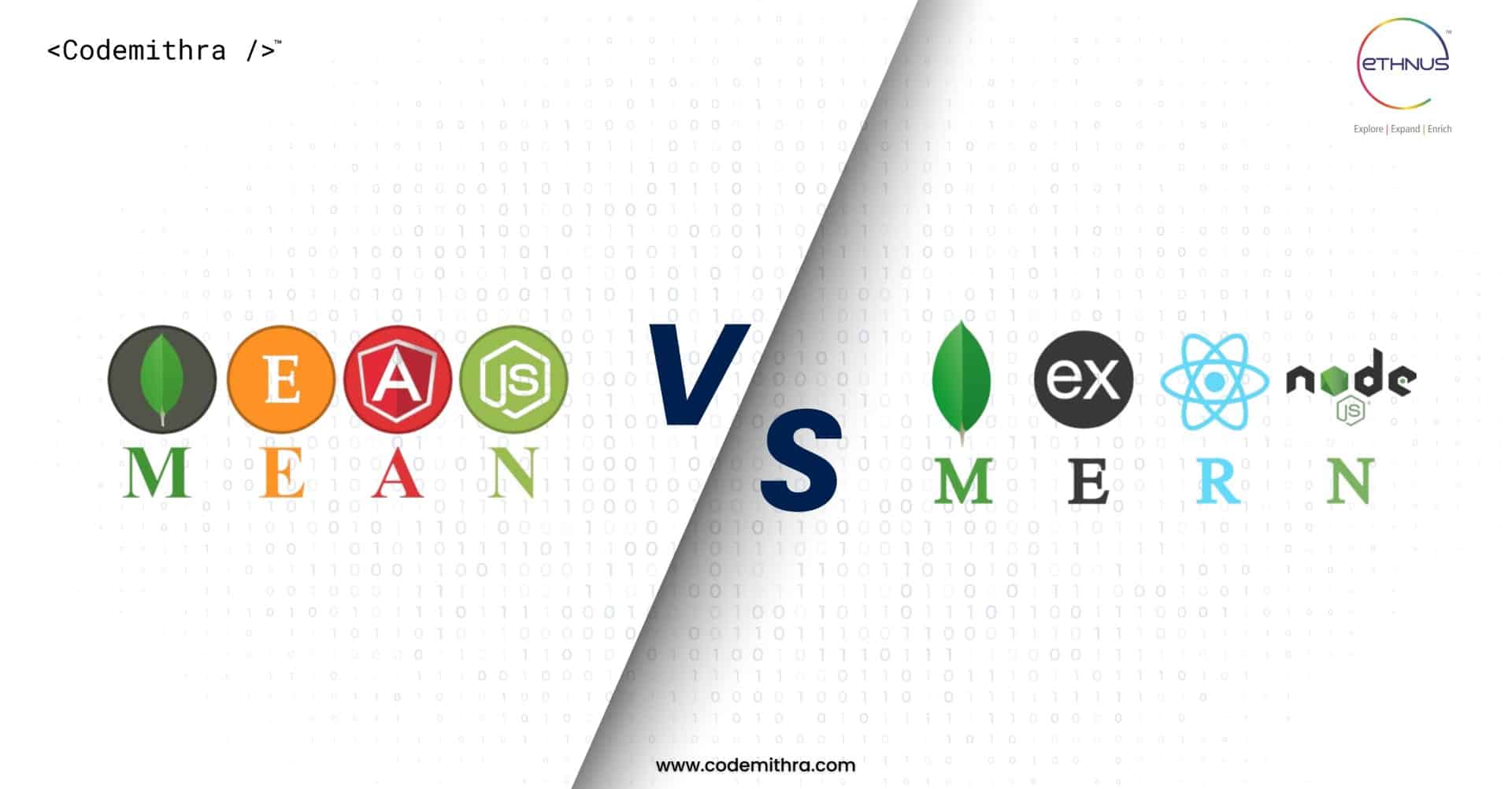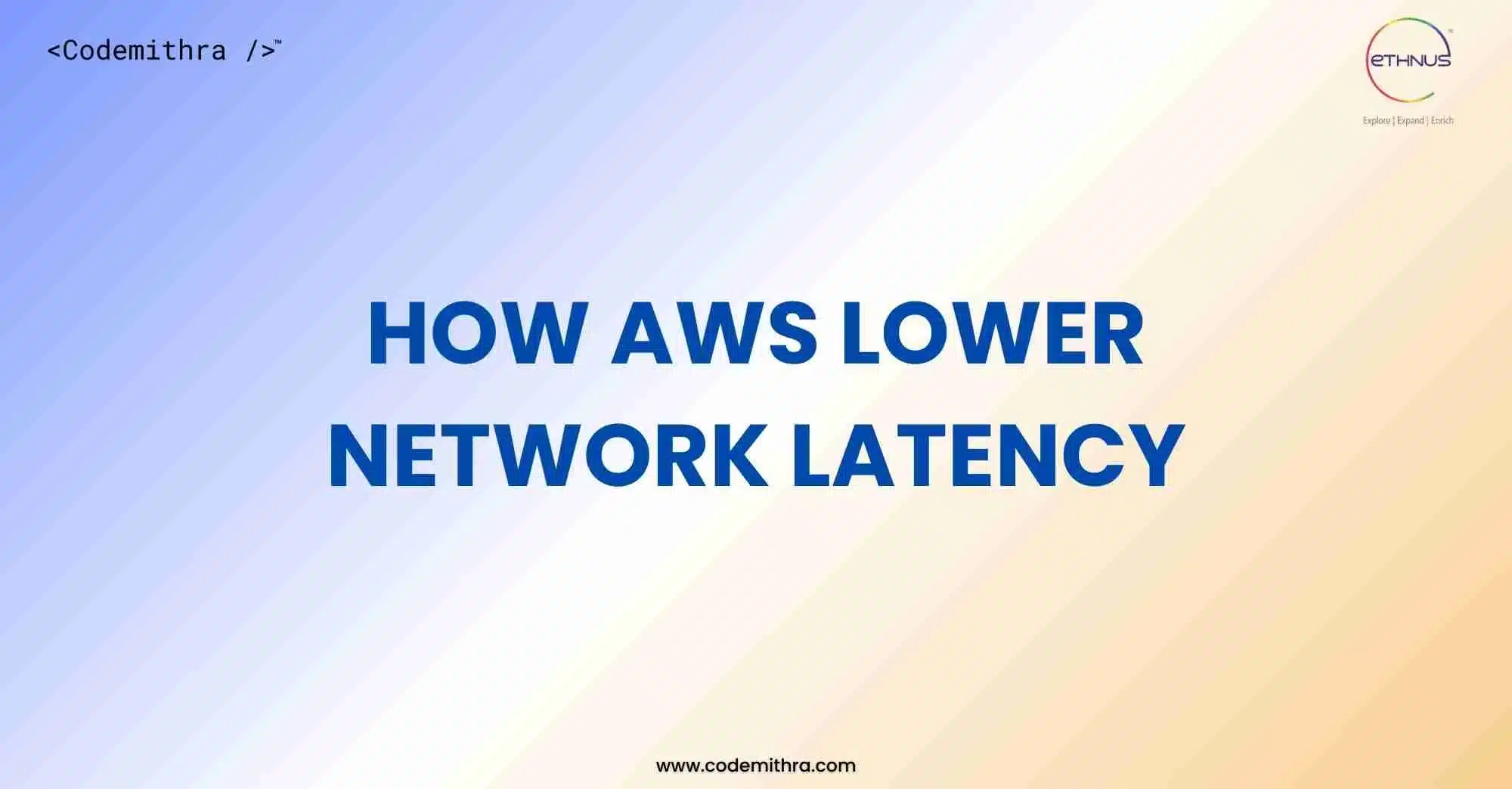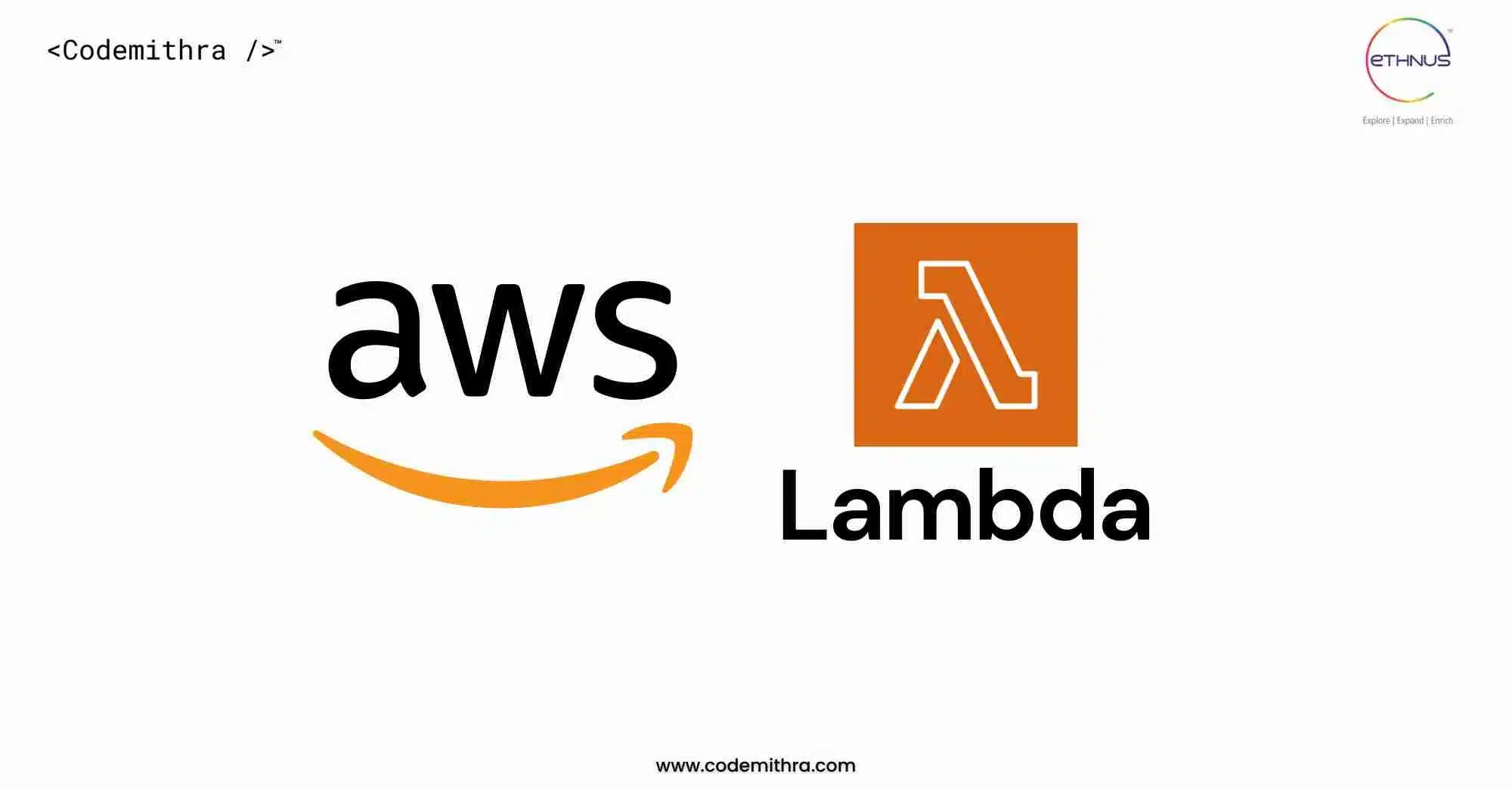Introduction:
In the ever-evolving world of web development, JavaScript has emerged as a dominant programming language, enabling developers to create dynamic, responsive, and feature-rich web applications. With the rise of full-stack development, where developers handle both the front-end and back-end aspects of an application, the MEAN and MERN stacks have become popular among JavaScript enthusiasts. If you’re embarking on a web development project and are torn between these two stacks, it’s crucial to understand their nuances to make an informed decision.
In this article, we’ll dive into the MEAN (MongoDB, Express.js, Angular, Node.js) and MERN (MongoDB, Express.js, React, Node.js) stacks, highlighting their unique characteristics and helping you make an informed decision.
What is MERN Stack?
The MERN Stack is a popular JavaScript-based technology stack that offers a comprehensive framework for building full-stack web applications. Comparable to the MEAN Stack, the MERN Stack is widely used for developing hybrid mobile and web applications. It consists of a collection of JavaScript-based frameworks, databases, and runtime environments, similar to the MEAN Stack. With the MERN Stack, developers can work with an end-to-end framework, making it easier to streamline the development process. The MERN Stack is gaining increasing popularity due to its ability to provide businesses and organizations with the agility, efficiency, and insights they need to thrive in today’s competitive digital landscape. JavaScript, being at the core of the MERN Stack, enables developers to create websites with high levels of performance and interactivity, rivaling those found in native mobile and desktop applications.
Components of MERN Stack
The MERN Stack comprises four key components that work together to enable full-stack JavaScript development:
- MongoDB: MongoDB is a popular NoSQL database that stores data in flexible, JSON-like documents. It offers scalability, high performance, and easy integration with JavaScript-based applications. MongoDB’s document-based structure allows for efficient storage, retrieval, and manipulation of data, making it well-suited for web development projects.
- Express.js: Express.js is a minimalistic and flexible web application framework that runs on top of Node.js. It simplifies the process of building server-side applications by providing a robust set of features for routing, middleware management, and handling HTTP requests and responses. Express.js allows developers to create APIs and server-side logic efficiently.
- ReactJS: React is a powerful JavaScript library for building user interfaces. It follows a component-based architecture, allowing developers to create reusable UI components. React utilizes virtual DOM and efficient rendering techniques to ensure fast and responsive user interfaces. It has gained significant popularity for its performance, flexibility, and ease of use.
- Node.js: Node.js is a JavaScript runtime environment that allows developers to execute JavaScript code on the server side. It provides an event-driven, non-blocking I/O model that enables high scalability and efficient handling of concurrent requests. Node.js serves as the backbone of the MERN Stack, allowing for seamless communication between the server and the client-side components.
These four components – MongoDB, Express.js, React, and Node.js – form the foundation of the MERN Stack, enabling developers to build dynamic and interactive web applications using JavaScript across the entire stack.
Key features of the MERN Stack include:
- Distributed Database: MongoDB, the database component of the MERN Stack, allows data to be stored and accessed across multiple servers. This ensures high availability and fault tolerance as if one server fails, the data remains accessible from other servers.
- Unified Language: The MERN Stack leverages JavaScript for both client-side and server-side development. This eliminates the need to switch between different programming languages, providing a unified development experience and reducing complexity.
- Flexibility and Efficiency: MongoDB’s flexible data format, along with the rich graphical user interface (GUI) and command-line utilities, enables developers to create customized applications quickly and easily. This flexibility saves time and enhances overall development efficiency.
- React for UI Abstraction: React JS, the front-end library in the MERN Stack, offers an ideal solution for UI layer abstraction. By using React, developers can create reusable UI components, resulting in cleaner and more maintainable code. This allows for better organization and control over the application’s user interface.
The MERN Stack offers the following key benefits:
– MVC Design Pattern: The MERN Stack follows the MVC (Model-View-Controller) design pattern, which separates the data, presentation, and logic of a web application. This division makes the development process more manageable and promotes better organization.
– Real-time Testing and Built-in Tools: The MERN Stack provides a comprehensive set of built-in tools that facilitate real-time testing during the development process. This enables developers to ensure the quality and reliability of their applications.
– Flexible Component-Based Structure: The MERN Stack adopts a flexible component-based structure, particularly with React, allowing for faster development cycles. Developers can create reusable UI components, enhancing code reusability and maintainability.
– Server-side Rendering with React: One of the advantages of the MERN Stack is the ability to run React-based code on both browsers and servers. This flexibility gives developers the freedom to generate pages on the server whenever necessary, improving performance and providing a more seamless user experience.
– Full-Stack JavaScript Development: The MERN Stack relies on JavaScript for the entire development process, from front-end to back-end. This unified language allows developers to work seamlessly across different components, promoting better collaboration and code consistency.
What is MEAN Stack?
The MEAN Stack is a popular and widely-used open-source technology stack that is entirely based on JavaScript. It provides developers with a comprehensive set of tools and frameworks to build responsive and feature-rich web applications and hybrid mobile apps. The MEAN Stack is known for its ability to streamline the development process and enable rapid application development. It consists of a collection of JavaScript-based components, including the MongoDB database, Express.js web application framework, AngularJS front-end framework, and Node.js runtime environment. Together, these components offer developers a complete end-to-end solution for building robust and scalable web applications.
The MEAN Stack comprises several components that work together to enable full-stack JavaScript development:
- MongoDB: MongoDB is a versatile database that excels in storing data in JSON format from applications with back-ends. It is a NoSQL database tool that efficiently handles large data sets.
- Express.js: Express.js is an open-source web application framework built on Node.js. It simplifies back-end web development by providing a flexible and adaptable framework suitable for a wide range of projects.
- AngularJS: AngularJS is a popular JavaScript front-end framework used for developing cross-platform applications. It offers powerful tools and features for creating dynamic and interactive user interfaces.
- Node.js: Node.js is a cross-platform runtime environment that allows developers to build scalable and high-performance server-side applications using JavaScript. It provides event-driven and non-blocking I/O operations, making it ideal for building real-time applications.
The MEAN Stack offers the following key features:
- Bandwidth Optimization: The use of JavaScript throughout the MEAN Stack allows for efficient utilization of bandwidth, reducing unnecessary consumption. This enhances the overall performance and responsiveness of web applications.
- MongoDB NoSQL Database: MongoDB, a classified NoSQL database, simplifies data management tasks such as inserting, updating, and deleting data. Its flexible document-based model makes it easier for developers to work with data.
- Node.js for Fast Loading: The integration of Node.js in the MEAN Stack enables fast website loading times. Its event-driven design allows for quick processing of database operations, preventing unexpected delays and optimizing performance.
- Isomorphic Code: The MEAN Stack supports isomorphic code, which means that the same codebase can be used on both the client-side (browser) and server side (Node.js). This versatility allows for seamless code migration to different frameworks while retaining the functionality of the code.
The MERN Stack offers the following benefits:
- Full-Stack Development: The MERN Stack covers the entire web development process, from the client side to the server side. This comprehensive stack allows developers to build web applications using JavaScript throughout, ensuring a seamless development experience.
- Simplified Development with MVC: The MEAN Stack follows the MVC (Model View Controller) design pattern, which simplifies web application development. This architectural approach separates the data, presentation, and logic, making it easier to manage and maintain the application.
- Pre-Built Testing Tools: The MERN Stack provides a rich set of pre-built testing tools specifically designed for web application development. These tools assist developers in ensuring the quality and reliability of their applications, saving time and effort in the testing process.
- Strong Open-Source Community: The MERN Stack is built on open-source technologies that have a vibrant and supportive community. This community provides valuable resources, documentation, and support, making it easier for developers to learn, troubleshoot, and enhance their applications.
- Cost-Effectiveness for SMEs: The MERN Stack is an excellent choice for small and medium-sized enterprises (SMEs) and startup businesses due to its low cost. The use of open-source technologies eliminates the need for expensive proprietary software licenses, making it a cost-effective solution for businesses with limited resources.
| MERN Stack | MEAN Stack | |
| Performance | The MERN Stack utilizes a virtual Document Object Model (DOM) instead of a native DOM, which can impact rendering speed. | MEAN stack applications demonstrate enhanced performance as they are built on a pre-configured framework. |
| MVC Architecture | While UI layer abstraction is beneficial for optimizing component rendering code in many online applications, it may not be necessary for every application. Therefore, the MEAN Stack is particularly well-suited for rapidly developing small-scale applications. | A well-organized framework with a large range of support tools and comprehensive development cycle coverage (front and client-side).
As a result, it’s well-suited to enterprise-level application development tasks. |
| Type | It has a JavaScript Library. | It has a JavaScript Framework. |
| Security | Various authentication mechanisms are available; however, they are subject to cross-site request forgery (CSRF) attacks. | Scalable frameworks such as Angular and Node.js are used to create this Stack. JSON Web Token secures unwanted access to any site and encrypts any sensitive data that supports them. |
| Mobile App Development | It gives a user experience that is almost identical to that of a native app. As a result, using the MERN stack for mobile app development is a superior alternative. | The Ionic framework, which Angular provides, allows you to create hybrid mobile apps. Because you just have one codebase for both Android and iOS ecosystems. |
| Data Flow | Data flow in React is unidirectional. As a result, you may adjust compared to the model state changes. It’ll come in handy if you’re in charge of large projects. | The data flow in Angular is bi-directional. As a result, you can change the UI and model to suit your preferences. |
Which one to pick?
(According to technical needs)
AngularJS and React play a fundamental role in distinguishing between the MEAN and MERN stacks. AngularJS provides a strong foundation for code abstraction and project file management, while React enables faster code development. Let’s explore the applications of both stacks:
- Enterprise-level projects: For developing robust enterprise-level applications like LinkedIn, the MEAN stack is preferred due to its well-organized structure and support for the Model-View-Controller (MVC) architecture. It simplifies code management and upgrades, although the MERN stack also supports MVC design.
- UI requirements: When advanced yet user-friendly UI rendering is required, the MERN stack excels. It effortlessly creates and displays frames on the screen, ensuring a smooth user experience.
- Third-party support: In enterprise-level app development, the ease of utilizing third-party libraries is important. MEAN stack, with AngularJS, offers built-in support for making HTTP calls and connecting to the back end. In contrast, ReactJS requires additional libraries for similar functionality. MEAN handles third-party extensions with a plug-and-play approach, while MERN requires additional configuration.
- Large-scale applications: The MEAN stack is ideal for large-scale projects such as eCommerce, as it provides a solid foundation for dynamic web applications and systematic prototyping. MEAN stack is recommended for full-stack development in such cases.
- Niche projects: The MERN stack is well-suited for creating and executing CRUD (Create, Read, Update, Delete) applications from start to finish. The use of React simplifies the management of dynamic data and ensures an excellent user experience. For small-scale projects, whether single-page applications or mobile apps, the MERN stack is a better choice.
(According to non-technical needs)
The choice between the MEAN Stack and MERN Stack ultimately depends on your specific project requirements, technical expertise, and personal preferences. Here are some factors to consider when making a decision:
- Front-end Framework: If you have experience with AngularJS and prefer its feature set and ecosystem, the MEAN Stack would be a suitable choice. On the other hand, if you prefer React and its component-based approach, the MERN Stack would be more appealing.
- Learning Curve: Consider your familiarity with the frameworks involved. AngularJS may have a steeper learning curve due to its comprehensive features and complexity, while React is known for its simplicity and ease of learning.
- Community Support: Both stacks have active and supportive communities, but the MEAN Stack has been around for a longer time, which means it has a more established and mature community. The MERN Stack, however, is rapidly growing in popularity and has a fast-growing community.
- Project Requirements: Evaluate the specific needs of your project. If you require a more extensive code reuse and component-based architecture, the MERN Stack with React would be advantageous. If you need a full-featured framework with built-in features for complex applications, the MEAN Stack with AngularJS might be a better fit.
- Performance Considerations: MEAN Stack applications may have a slight edge in rendering speed due to the use of native DOM, while MERN Stack applications leverage the virtual DOM offered by React. Consider the performance requirements of your project and how rendering speed impacts the user experience.
Ultimately, both stacks are capable of building powerful web applications, and the choice should align with your project goals, technical expertise, and preferences. It can be helpful to experiment with both stacks and evaluate their suitability through prototyping or smaller projects before committing to a specific stack for a larger-scale project.
Conclusion
In conclusion, both the MEAN and MERN stacks offer reliable frameworks for fast front-end development, resulting in lightweight JavaScript applications. The key difference lies in their organizational structure, making the MEAN stack a superior choice for large-scale applications, while the MERN stack excels in the rapid development of smaller apps.
To further enhance your skills and gain a deeper understanding of MERN stack development, we recommend checking out Codemithra’s MERN Stack course. This comprehensive course is designed for undergraduates and job seekers who are eager to enhance their technical expertise and grasp the intricacies of front-end and back-end web development. Take your web development skills to the next level with Codemithra’s MERN Stack course and unlock a world of opportunities in the dynamic field of web development.
FAQs
- What are the main differences between MEAN and MERN stacks?
The main difference lies in the choice of frontend frameworks. MEAN stack uses Angular for frontend development, while MERN stack uses React. Angular is a comprehensive and opinionated framework with a steeper learning curve, whereas React is a more lightweight and flexible library. Additionally, MEAN uses Node.js for server-side development, while MERN also utilizes Express.js.
- Which stack is better for beginners or developers new to JavaScript?
For beginners or developers new to JavaScript, the MERN stack is often considered more beginner-friendly. React, the frontend library used in MERN, has a gentler learning curve compared to Angular. React’s component-based architecture and extensive documentation make it easier to grasp and start building applications. However, it ultimately depends on the individual’s preferences and prior experience.
- Which stack is more suitable for large-scale or enterprise-level projects?
Both MEAN and MERN stacks can handle large-scale projects effectively. However, MEAN may be a better choice for enterprise-level projects due to Angular’s strong emphasis on structure, code organization, and robust features. Angular’s opinionated nature can help maintain consistency and scalability in larger codebases. However, MERN, with its flexibility and extensive third-party library support, can also be a viable option for large-scale projects.
- Are there any performance differences between MEAN and MERN stacks?
In terms of performance, MEAN and MERN stacks are comparable since both leverage Node.js for server-side development. The performance of the frontend largely depends on the efficiency of the chosen framework (Angular or React) and the developer’s implementation. It’s important to note that performance optimization should be approached on a case-by-case basis and may not be significantly affected by the choice between MEAN and MERN.





